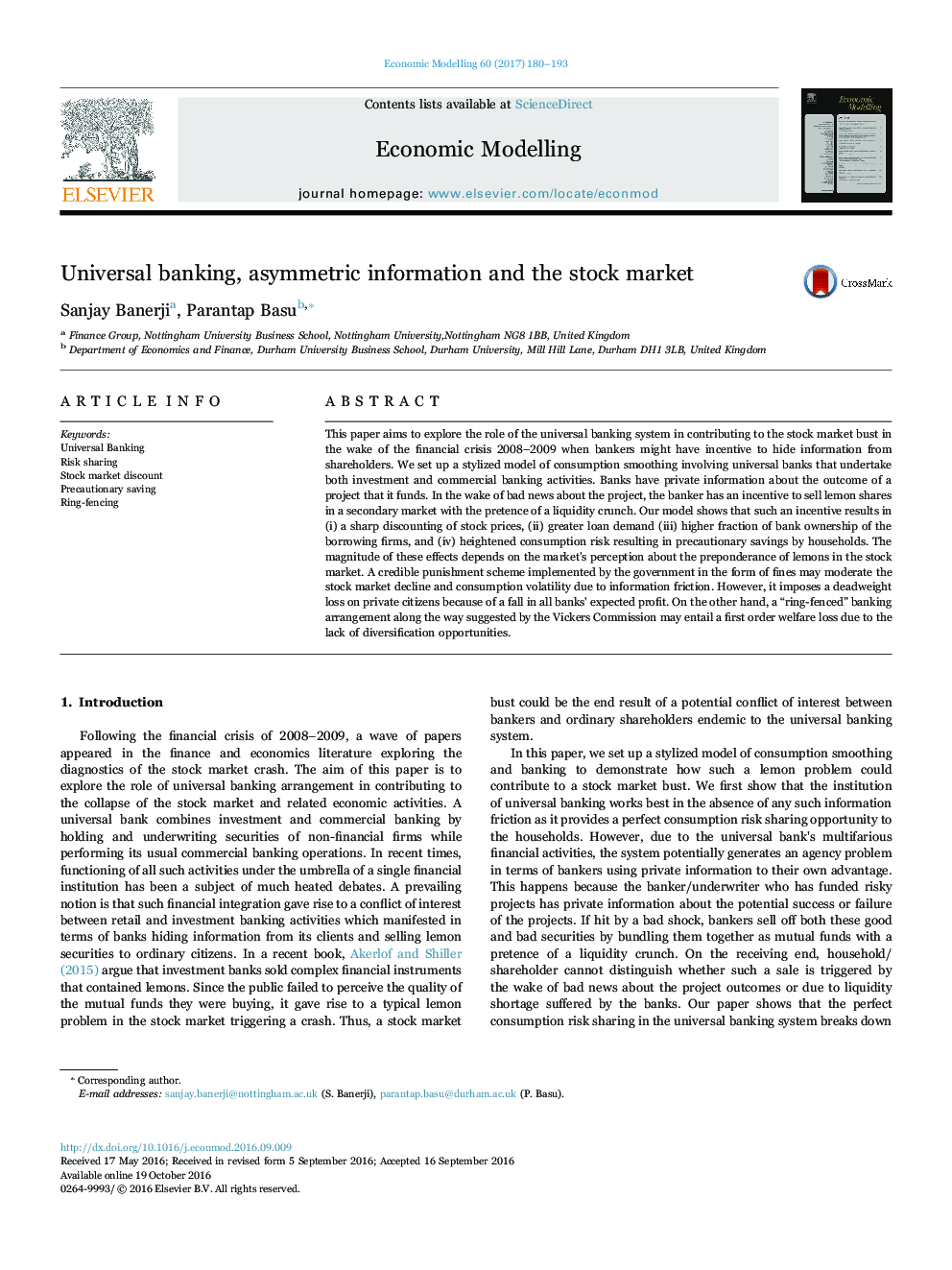| کد مقاله | کد نشریه | سال انتشار | مقاله انگلیسی | نسخه تمام متن |
|---|---|---|---|---|
| 5053199 | 1476509 | 2017 | 14 صفحه PDF | دانلود رایگان |
- Universal banks with superior information about projects could sell lemon stocks.
- This results in a stock market bust, precautionary savings and higher loan demand.
- Household borrowers fail to smooth consumption adequately and suffer welfare losses.
- A tax on banks can reduce the stock market discount and consumption volatility.
- Ring-fencing the banking industry entails first order welfare loss.
This paper aims to explore the role of the universal banking system in contributing to the stock market bust in the wake of the financial crisis 2008-2009 when bankers might have incentive to hide information from shareholders. We set up a stylized model of consumption smoothing involving universal banks that undertake both investment and commercial banking activities. Banks have private information about the outcome of a project that it funds. In the wake of bad news about the project, the banker has an incentive to sell lemon shares in a secondary market with the pretence of a liquidity crunch. Our model shows that such an incentive results in (i) a sharp discounting of stock prices, (ii) greater loan demand (iii) higher fraction of bank ownership of the borrowing firms, and (iv) heightened consumption risk resulting in precautionary savings by households. The magnitude of these effects depends on the market's perception about the preponderance of lemons in the stock market. A credible punishment scheme implemented by the government in the form of fines may moderate the stock market decline and consumption volatility due to information friction. However, it imposes a deadweight loss on private citizens because of a fall in all banks' expected profit. On the other hand, a “ring-fenced” banking arrangement along the way suggested by the Vickers Commission may entail a first order welfare loss due to the lack of diversification opportunities.
Journal: Economic Modelling - Volume 60, January 2017, Pages 180-193
